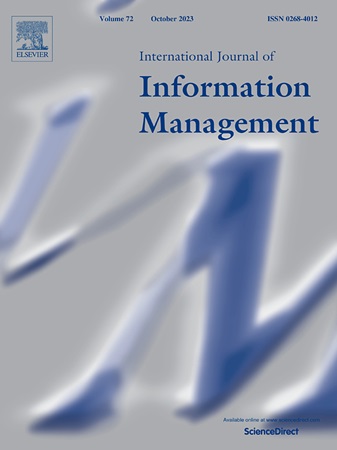通过服务机构的响应策略,吸引旁观者来应对网络钓鱼客户的不当行为
IF 27
1区 管理学
Q1 INFORMATION SCIENCE & LIBRARY SCIENCE
International Journal of Information Management
Pub Date : 2025-07-24
DOI:10.1016/j.ijinfomgt.2025.102957
引用次数: 0
摘要
管理客户的不当行为至关重要。然而,关于对一种特定的客户不当行为类型的管理和反应的研究,在线拖钓,还没有被彻底考虑。三项研究,包括实地研究、在线实验和关键事件技术(n = 777),探讨了客户(旁观者)是否会以及为什么会来帮助被钓鱼的服务机构。本研究考察了巨魔类型(伪善和攻击性)和服务反应策略(否认、贬低和道歉)对旁观者评价过程及其后续参与行为的影响。结果表明,旁观者更有可能通过回购意愿支持离线环境中伪善喷子受害者的服务机构。结果还表明,当服务机构成为攻击性巨魔的受害者时,他们应该采用否认危机沟通策略来获得旁观者的在线支持。但是,当服务机构成为伪善喷子的受害者时,就应该使用道歉危机沟通策略。结果进一步揭示归因和负性道德情绪是主要的串行中介。服务组织的声誉越高,其归因性质和负性道德情绪也越弱。本文章由计算机程序翻译,如有差异,请以英文原文为准。
Engaging bystanders in response to online trolling customer misbehavior through service organization response strategies
Managing customer misbehavior is crucial. Yet research regarding the management and response towards one specific customer misbehavior type, online trolling, has not been thoroughly considered. Three studies, including a field study, online experiments and critical incident technique (n = 777) explored whether, and why, customers (bystanders) may come to the aid of a service organization being trolled. This research examines the impact of troll type (hypocriticize and aggress) and service response strategy (deny, diminish, and apology), on the appraisal process of bystanders and their subsequent engagement behaviors. Results show that bystanders are more likely to support a service organization that is a victim of a hypocriticize troll in an offline setting through repurchase intentions. The results also show that when the service organization is a victim of an aggress troll, they should employ a deny crisis communication strategy to gain online support from bystanders. When the service organization, however, is a victim of a hypocriticize troll, an apology crisis communication strategy should be used. Results further reveal that attribution and negative moral emotions act as key serial mediators. The nature of attribution and negative moral emotions are also shown to be weaker for service organizations with higher level of reputation.
求助全文
通过发布文献求助,成功后即可免费获取论文全文。
去求助
来源期刊

International Journal of Information Management
INFORMATION SCIENCE & LIBRARY SCIENCE-
CiteScore
53.10
自引率
6.20%
发文量
111
审稿时长
24 days
期刊介绍:
The International Journal of Information Management (IJIM) is a distinguished, international, and peer-reviewed journal dedicated to providing its readers with top-notch analysis and discussions within the evolving field of information management. Key features of the journal include:
Comprehensive Coverage:
IJIM keeps readers informed with major papers, reports, and reviews.
Topical Relevance:
The journal remains current and relevant through Viewpoint articles and regular features like Research Notes, Case Studies, and a Reviews section, ensuring readers are updated on contemporary issues.
Focus on Quality:
IJIM prioritizes high-quality papers that address contemporary issues in information management.
 求助内容:
求助内容: 应助结果提醒方式:
应助结果提醒方式:


